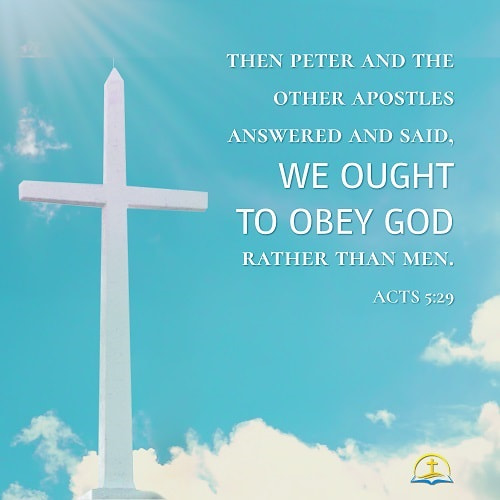John 1:14 Meaning: How to Know the Incarnate God
Daily Bible Verse of the Day
And the Word was made flesh, and dwelled among us, (and we beheld his glory, the glory as of the only begotten of the Father,) full of grace and truth.
The God from heaven came to the human world and became a flesh-and-blood person. This is known as God’s incarnation. God in the flesh lives among people in a real and tangible way, dwelling with them. Outwardly, He appears as an ordinary person. If people do not recognize Him as the incarnate God, it is easy for them to pass judgment, condemn, and reject Him, and the consequences of such actions are severe. So, how can one recognize the incarnate God? Read this text to find the answer and give yourself the opportunity to welcome the Lord’s return.
This passage records the crucial message of God becoming incarnate. The God in heaven, with immense love and humility, became a part of humanity, living among us, taking on our pains and struggles. He brought abundant grace and truth, providing us with the opportunity to encounter God face to face and opening the path to heaven for us. God became incarnate as the Son of man, appearing as an ordinary person with a birth family, parents, and participating in the routine activities of human life. He lived among us, experiencing the full range of human emotions and partaking in all the regular aspects of human existence. His external appearance did not stand out in any distinct way. How then do we recognize Him as the incarnate God, as Christ? This passage gives us valuable insight – the incarnate God is capable of expressing truth and performing God’s own work. So, to recognize the incarnate God, we shouldn’t base it on His outward appearances; instead, we should observe whether He can express truth, express God’s voice, and perform God’s work. That’s the crucial factor. As God says, “He who is God incarnate shall possess the essence of God, and He who is God incarnate shall possess the expression of God. Since God becomes flesh, He shall bring forth the work He intends to do, and since God becomes flesh, He shall express what He is, and shall be able to bring the truth to man, bestow life upon him, and point the way for him. Flesh that does not have the essence of God is decidedly not the incarnate God; of this there is no doubt. If man intends to inquire into whether it is God’s incarnate flesh, then he must corroborate this from the disposition He expresses and the words He speaks. Which is to say, to corroborate whether or not it is God’s incarnate flesh, and whether or not it is the true way, one must discriminate on the basis of His essence. And so, in determining whether it is the flesh of God incarnate, the key lies in His essence (His work, His utterances, His disposition, and many other aspects), rather than external appearance” (The Word, Vol. 1. The Appearance and Work of God. Preface).
Having delved into God’s words and reflecting on the time when the Lord Jesus carried out His work during the Age of Grace on Earth, His outward appearance appeared quite ordinary—neither towering nor extraordinary. He lived a common life, sharing the same necessities and experiences as ordinary people, truly interacting with them. One could not visibly identify Him as the incarnate God. However, He possessed the divine essence, something imperceptible to the human eye. What people could see is that He is capable of expressing the truth at any given moment, revealing mysteries, speaking to humanity, and expressing God’s righteous disposition, omnipotence, and wisdom. He bestowed upon humanity the path of repentance.
These things are beyond the capability of any ordinary person, proving conclusively that the Lord Jesus is Christ, the God incarnate. Therefore, the crucial factor in determining whether one is God incarnate, whether one is Christ, is to investigate His spoken words and works. As long as He can express the truth and God’s disposition while performing His work, He is the incarnate God, the Christ.
In this current era, which marks the last stage of the end times, the prophecies of the Lord’s return have been fulfilled. It is now the crucial moment to welcome the Lord’s second coming. Recognizing the incarnate God is vital for our welcoming the Lord’s return, as Lord Jesus prophesied, “Be you therefore ready also: for the Son of man comes at an hour when you think not” (Luke 12:40). “But as the days of Noah were, so shall also the coming of the Son of man be” (Matthew 24:37). The repeated use of the term “Son of man” by the Lord Jesus indicates that His second coming will still be in the form of the incarnate Son of man. As long as we understand the path to recognizing the incarnate God, we have the opportunity to welcome the Lord and join Him at the banquet.
If you desire a deeper understanding of the truth of God becoming incarnate and wish to welcome the Lord sooner, please reach out to us through the online chat window at the bottom of our website. Let’s study God’s word and communicate online.








